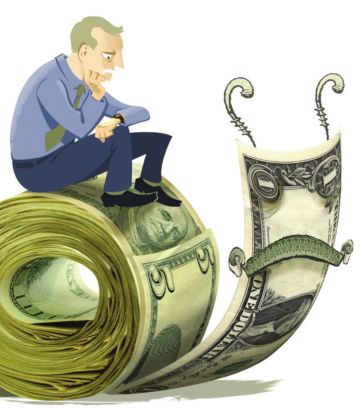More than $63 million owed under union contract
State employees may receive back pay for raises they should have received almost four years ago, thanks to legislation which passed the Illinois House last week.
The bill stems from a 2010 dispute between unions and former governor Pat Quinn over contractual pay raises. Despite a court opinion ordering the state to pony up, the raises have gone unpaid since July 2011.
Like many political dramas in Illinois, the tussle over unpaid raises stems from the state’s ongoing financial crisis. In 2010, Quinn threatened to lay off 2,600 state employees and close several state facilities to make ends meet. State employee unions struck a deal with Quinn in which the governor wouldn’t lay off any employees or close facilities until July 2011 if unionized state employees agreed to several concessions to save the state $50 million.
Among other concessions, the state employees agreed to accept half the value of the raises mandated in their contract, while also delaying the start of the raises 10 months. However, when it came time for the state to pay the slashed and deferred raises, Quinn refused to honor the bargain, saying the Illinois General Assembly hadn’t appropriated enough money in the state budget for them. The unions sued, saying Quinn breached their contract, and a judge eventually ordered the state to pay up.
Anders Lindall, spokesman for the American Federation of State, County and Municipal Employees (AFSCME) Council 31, the largest union of state employees, says the lawsuit is still active, and the state did pay some of the employees their overdue wages last year. That amounted to about 45 percent of the back wages owed. However, he said about 25,000 employees are still waiting for their wages at the departments of Human Services, Corrections, Juvenile Justice, Natural Resources and Public Health. Many of those employees work in Springfield, he said.
“This is about fairness,” Lindall said.
“These thousands of men and women went to work to serve us every day for two years, and they were not being paid what they earned and what they were owed.”
Rep. Sue Scherer, D-Decatur, sponsored House Bill 3763, which would pay all of the remaining back wages, to the tune of $63.2 million. Scherer successfully shepherded the bill through the House with an 88-23 vote on April 15. During debate on the bill, she told her fellow House members that the back wages are the state’s oldest unpaid bill, and every day it goes unpaid costs the state more money in interest.
“These are not huge salaries that we’re discussing,” Scherer said. “These are the hardworking people of our state: people who clean the toilets, people who sweep the floors, people who fix the broken chairs. I could go on and on and on, but these are small salaries owed to many people who worked so hard every day.”
Although lawmakers from both parties commented in support of the bill during debate, Rep. Dwight Kay, R-Glen Carbon, used the opportunity to take a shot at Quinn and the Democrats, saying the wages could have been paid sooner if the state hadn’t spent millions on a botched program that Quinn instituted to quell violence in certain Chicago neighborhoods. The program was ultimately shown ineffective, and some of the city’s most violent neighborhoods didn’t receive any assistance.
Republicans claimed that Quinn distributed the money ahead of the 2014 election to buy votes against Gov. Bruce Rauner, who at that time was Quinn’s Republican challenger. The House held public hearings about the matter, and federal prosecutors investigated, but no charges have been filed.
Scherer’s bill to pay state employees their back wages still requires approval from the Senate. Although current Gov. Bruce Rauner could theoretically veto the bill, his veto would likely be overridden by the veto-proof Democratic majorities in both legislative chambers. Additionally, several Republicans in the House voted for the bill.
Contact Patrick Yeagle at [email protected].